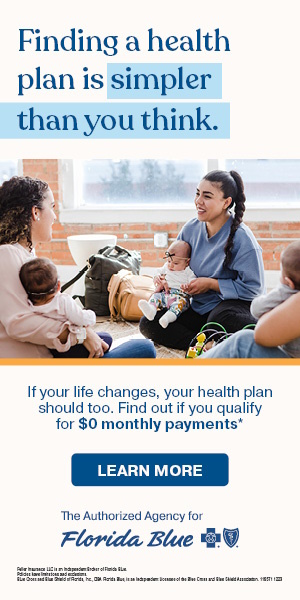Maria Lahti, M.D., and Lauren Stipp, M.D., Sacred Heart Emerald Coast
Every year, we set great resolutions for our health. Unfortunately, we usually forget them quickly. This year, don’t miss the opportunity to reprioritize your heart health. Heart disease is the leading cause of death for both men and women according to the CDC, but many cardiac events are preventable. There are no quick fixes, but there are some easy steps you can take to make a difference.
Follow these tips to take control of your heart health in 2024.

Tip 1: See Your Doctor for Annual Screening
Your risk of developing heart disease increases as you age. According to research published by the Journal of the American Heart Association, people over age 40 have a 1-in-4 lifetime risk of developing AFib, or atrial fibrillation, a common heart rhythm condition. Scheduling regular visits with your primary care doctor and any specialists you see can help catch problems sooner rather than later, which can be lifesaving in some cases.
Especially if you experience high blood pressure or high cholesterol, make doctor’s visits a priority to keep a close eye on your heart health. At Ascension St. Vincent’s, our teams of primary care doctors and cardiologists, including those at our hospital in St. Johns County, can provide you with the most effective screening methods to check for heart disease and other conditions.
Tip 2: Monitor Your Heart Health
Many of our patients use personal technology, like portable medical-grade EKG devices, to help monitor their hearts from home. These devices can help doctors detect heart rhythm irregularities sooner, which can sometimes help make a diagnosis or even prevent a stroke. But not all technology is created equal. For example, a less complex heart rate monitor and one that is built to be an EKG-grade device may show differing results.
Tip 3: Avoid Excessive Stress
We all experience stress, but excessive and prolonged stress can contribute to heart issues like blood vessel constriction and high blood pressure, elevating the risk of a heart attack and stroke. Regular exercise is a key stress reducer. Whether it’s a brisk walk, yoga, or a fitness class, physical activity benefits both the heart and mental health.
Tip 4: Focus on Moderation
Alcohol is often linked to heart problems, notably increasing the risk of AFib. An observational study in the European Heart Journal found that even one daily glass of wine or beer led to a 16 percent higher risk of developing AFib (compared to not drinking). AFib, in turn, increases the risk of stroke, heart failure, and cardiac arrest. While enjoying a glass of wine is fine, moderation is key. Exceeding two drinks in a day is never heart-healthy.
Tip 5: Stick to Healthy Eating Habits
Try to limit salty foods, such as canned or processed foods. Also limit high-fat foods, such as red meat, cheese, and baked goods. When it comes to a heart-healthy diet, the important thing is to maintain balance. A Mediterranean-style diet high in vegetables, fruits, lean proteins, and whole grains has been shown to promote weight loss and reduce heart disease risk.
Tip 6: Know the Signs of Stroke and Don’t Delay Treatment
Recognizing the warning signs of stroke can protect both yourself and your loved ones. The important acronym to remember for identifying a stroke is B.E. F.A.S.T. That stands for balance, eyes/vision loss, face drooping, arm weakness, speech difficulty, and time to call 911. It’s common to mistake or minimize the signs of stroke, but don’t delay treatment. Call 911.
Dr. Maria Lathi is a cardiologist at Sacred Heart Emerald Coast. Dr. Lauren Stipp is a cardiologist specializing in cardiac imaging at Sacred Heart Emerald Coast. For more information, visit Healthcare.ascension.org.
Visits: 0






















































